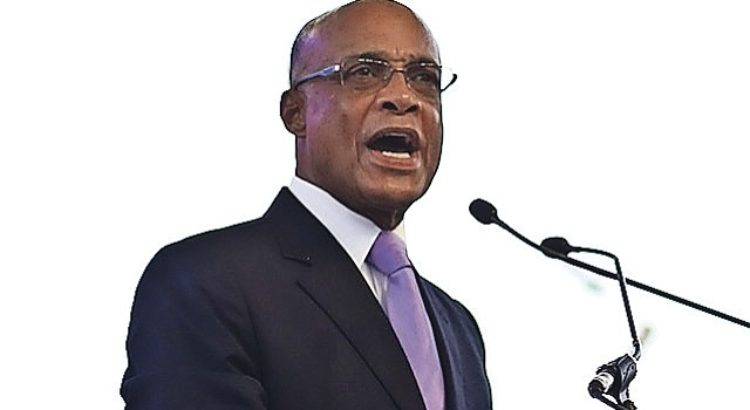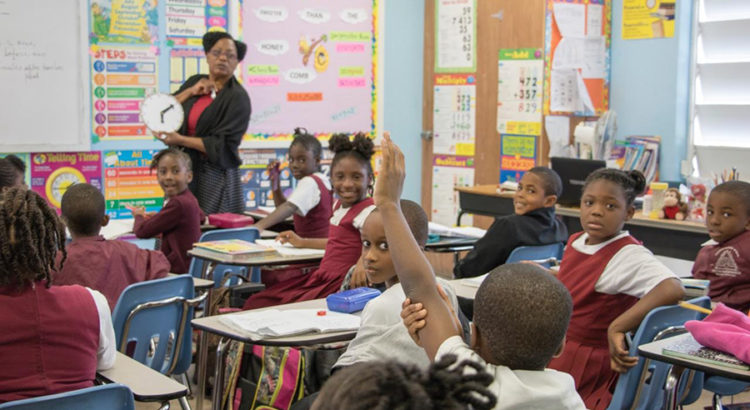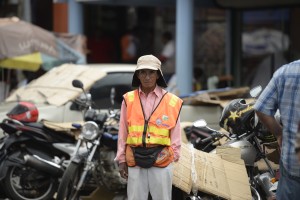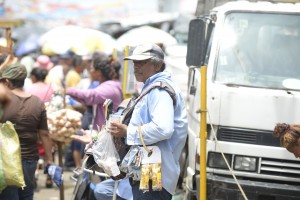Campbell: No more corporal punishment in children’s homes
Behavior modification program to be introduced instead
Child protection council recommends external accredited training as requirement for child caretakers
NASSAU, BAHAMAS — The government will immediately cease all forms of corporal punishment at children’s homes across the country, advised Minister of Social Services Frankie Campbell yesterday.
Campbell, who spoke to reporters outside Cabinet, indicated that the government will implement several recommendations from the National Child Protection Council following an investigation into allegations of child abuse at the Children’s Emergency Hostel.
Last month, a video was widely circulated on social media showing several women, allegedly at the home, appearing to verbally scold a group of little boys before beating them.
As a result, four employees at the home were “relieved of their duties” after preliminary investigations by the National Child Protection Council yielded sufficient information to refer the matter to the police for an official probe.
“We have agreed and accepted the recommendations and we will notify all employees, all staff members of children’s homes, in writing and let them sign to show that they are aware of the missive that there will be no corporal punishment in any form at this time,” Campbell said.
“And to make sure we are clear about corporal punishment, we will adopt the definition that is given by the Ministry of Education so that there is a standardized understanding.”
Campbell advised that other recommendations put forth by the council include the implementation of regular and random site visitations from senior officials in the Department of Social Services and a member of the council, to ensure logs are being properly maintained as well as proper oversight.
In addition to the in-house training the staff is given, the council also recommended that there be an external accredited training program as part of the requirement for employment at the homes.
The social services minister said the government has also accepted the recommendation to create a behavior modification program for the children.
“It is important that while we won’t administer corporal punishment, that the behavior of the children is as such that it is acceptable in any social environment,” he said.
Additionally, Campbell advised that the government will implement evaluations of each child at the admission stage to determine where they are at and how best to address their needs on an individual basis.
He indicated that he has spoken to the chairman of the board of the Children’s Emergency Hostel and will share the report with him before releasing it to the public.
“The recommendations that we have accepted will be across the board for all of our children’s homes through the Commonwealth of The Bahamas as we await the results of the investigations from the police.”
In the nearly 10-minute-long video, at least five different women, including one in a wheelchair, are seen beating several young boys with either their hands or thin objects. It is unclear whether all of the adults were employed at the home.
Initially, the boys are lined up and called one-by-one to receive their beatings. But as the video goes on, the scene becomes more extreme as some boys, writhing in pain and trying to escape, end up being chased around the room or even held down on a desk and struck by some of the women as others look on.
While he was unsure whether any additional workers have been terminated, Campbell once again assured that “whoever is responsible, whoever is found culpable, will have to answer to some authority”.
The children at the home are receiving independent counseling in collaboration with the Ministry of Education.
Currently, there are about 150 children in eight homes under the Ministry of Social Services. That number does not include children who are in foster care but still fall within the remit of the ministry.
Three of those homes are owned by the government and the others are privately-owned entities that receive government oversight.
Fuente de la Información: https://ewnews.com/campbell-no-more-corporal-punishment-in-childrens-homes



















 Users Today : 45
Users Today : 45 Total Users : 35460062
Total Users : 35460062 Views Today : 61
Views Today : 61 Total views : 3418692
Total views : 3418692